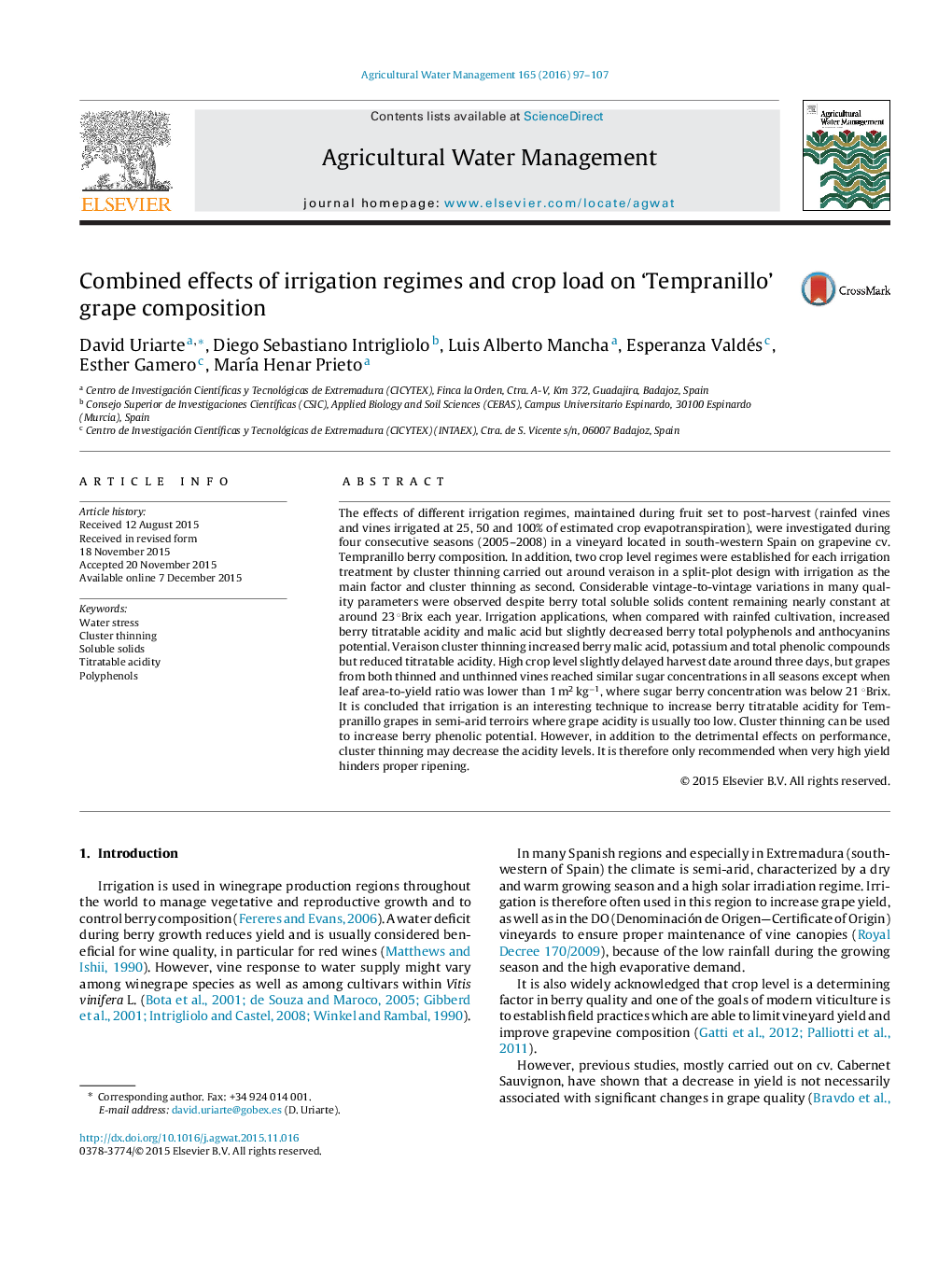| Article ID | Journal | Published Year | Pages | File Type |
|---|---|---|---|---|
| 4478304 | Agricultural Water Management | 2016 | 11 Pages |
•Deficit irrigation allows to attain similar phenolic composition to non-irrigated vines.•Water replenishments above 25% ETc increased must titratable acidity.•Cluster thinning accelerated ripening and increased phenolic and anthocyanin grape contents.•The effects of irrigation regime were not dependent on the vine crop level.
The effects of different irrigation regimes, maintained during fruit set to post-harvest (rainfed vines and vines irrigated at 25, 50 and 100% of estimated crop evapotranspiration), were investigated during four consecutive seasons (2005–2008) in a vineyard located in south-western Spain on grapevine cv. Tempranillo berry composition. In addition, two crop level regimes were established for each irrigation treatment by cluster thinning carried out around veraison in a split-plot design with irrigation as the main factor and cluster thinning as second. Considerable vintage-to-vintage variations in many quality parameters were observed despite berry total soluble solids content remaining nearly constant at around 23 °Brix each year. Irrigation applications, when compared with rainfed cultivation, increased berry titratable acidity and malic acid but slightly decreased berry total polyphenols and anthocyanins potential. Veraison cluster thinning increased berry malic acid, potassium and total phenolic compounds but reduced titratable acidity. High crop level slightly delayed harvest date around three days, but grapes from both thinned and unthinned vines reached similar sugar concentrations in all seasons except when leaf area-to-yield ratio was lower than 1 m2 kg−1, where sugar berry concentration was below 21 °Brix. It is concluded that irrigation is an interesting technique to increase berry titratable acidity for Tempranillo grapes in semi-arid terroirs where grape acidity is usually too low. Cluster thinning can be used to increase berry phenolic potential. However, in addition to the detrimental effects on performance, cluster thinning may decrease the acidity levels. It is therefore only recommended when very high yield hinders proper ripening.
